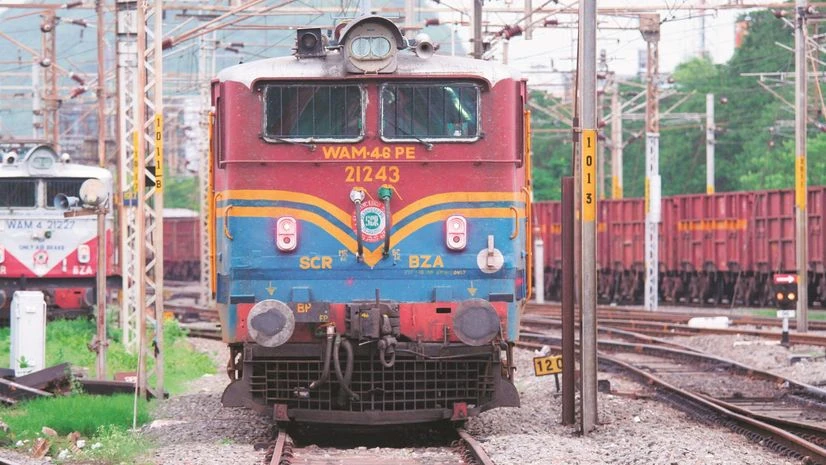In what could impact the electricity procurement planning of the national transporter, the Appellate Tribunal of Electricity (APTEL) has ruled that the Indian Railways is 'not a deemed distribution licensee.'
The Tribunal, in a 387-page judgement, said that as the Railways consumes all the electricity that it procures, it is not a licensee and hence is liable to pay additional surcharges and cross subsidy surcharges like any other open access electricity consumer.
The APTEL pronounced the judgement in a batch of cases filed by various state power distribution companies and the Indian Railways to examine whether Indian Railways falls within the term 'Appropriate Government' under Section 14 of the Electricity Act, 2003.
The effect of the verdict will be major for railway finances, officials at the Ministry of Railways said. Indian Railways is the country’s largest consumer of electricity, with a significant amount used in both train operations and for non-traction purposes.
According to broad estimates, the railways spent Rs 20,000 crore on electricity consumption expenses in FY24 and is expected to spend approximately Rs 22,000-23,000 crore in FY25. Of these, roughly 60 per cent outgo is on train operations and the rest on non-traction.
Also Read
Deemed distribution licensee is an electricity consumer which isn't obligated to acquire a licence for inter-state transmission of electricity. The Indian Railways was one such, given the nature of its nationwide electricity procurement and usage. The Railways procures electricity directly from power distribution companies (discoms) of various states.
A discom levies cross subsidy surcharges (CSS) and additional surcharges (AS) on large commercial users if they procure electricity from another supplier other than the discom. This is done to compensate the discoms for using its electricity supply network by the user.
With the deemed licensee tag, the Railways was exempted from paying these charges despite its procurement not being restricted to a single discom, said various state electricity departments in their appeal. They also said the railways cannot be a deemed licensee as it consumes all electricity and doesn't sell. The discoms said Railways is an open access consumer and should pay the charges levied on it. Open access allows large consumers to procure electricity from anywhere by paying CSS and AS.
The apex regulatory body of the electricity sector in its judgement on Monday said, 'It is held that Indian Railways is not a deemed distribution licensee falling within the ambit of the third proviso to Section 14 of the Electricity Act as it does not distribute/ supply electricity (i.e. sell electricity to consumers for a price) as required of a distribution licensee under the Electricity Act.'
It further clarified: 'Even otherwise, as the entire electricity which it receives from the Grid is completely consumed by it and its constituents, it is required to pay additional/cross-subsidy surcharge to different distribution licences under Section 42 of the Electricity Act if it chooses to procure electricity from sources other than the concerned distribution licensees within whose area of supply it is situated.'
The order would entail levy of CSS and AS on the Railways by the discoms. Discoms tend to levy CSS and AS arbitrarily, mostly to recover their cost from large consumers for giving subsidised electricity to another section of the population.
While the union ministry of power lately has capped the CSS at 20 per cent and has called for gradual decrease and abolishing of AS, discoms continue to levy it on large commercial consumers.
While the ceiling of the financial impact can be quite high, officials are expecting the effects to not be as profound. The ministry is currently assessing the financial impact of the order, as Indian Railways is not a deemed distribution licensee in seven states and pays the inflated charge to discoms in those states. Moreover, the dedicated freight corridor (DFC) network also consumes close to half its electricity as a consumer, a top government official said.
'I think the order will impact the railways’ electricity expense by close to 10 per cent, but I expect them to appeal against this order,' Lalit Chandra Trivedi, former General Manager of East Central Railway, told Business Standard.
This would translate into an annual electricity expenditure hike of close to Rs 2,500 crore, which may reflect in increased charges directly or indirectly through increased budgetary allocations.
The railways is currently considering appealing against the decision in the Supreme Court and is engaged in legal consultations internally, the official quoted above said.

)
